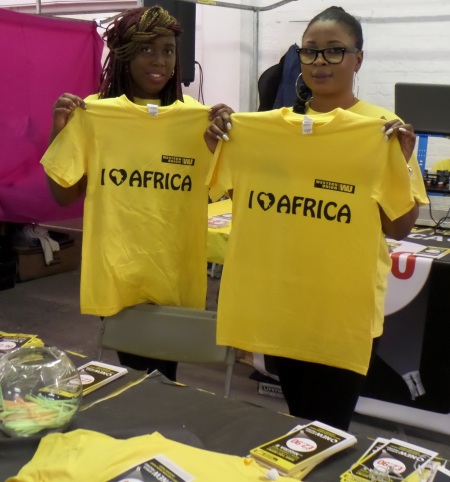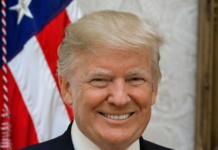
A new report estimates that African expatriates lose $1.8 billion a year in transfer fees to companies like MoneyGram and Western Union.
The report by leading UK international development think-tank, the Overseas Development Institute (ODI), specifically called on the UK’s consumer watchdog to investigate Western Union and MoneyGram for short-changing Africans a massive $1.8 billion annually via excessive charges on money sent home by migrant workers in the rest of the world.
Expatriate workers globally send some $436 billion across borders to their families in other countries. Many of the transfers are relatively small amounts – of the order of US$200 – which can incur relatively high fees. Cheap services like Xoom.com allow those with access to the internet to send larger sums to countries like India for fees of about two percent; major banks charge closer to five percent for account holders; but the most expensive are walk up services like MoneyGram and Western Union that accept cash in local shops.
The ODI paper, entitled “Lost in Intermediation: How Excessive Charges Undermine the Benefits of Remittances for Africa”, estimates that Africans are charged an average of 12 percent to use such money transfer services, almost double the global average.
“There is no justification for the high charges incurred by African migrants,” write Kevin Watkins and Maria Quattri, the authors of the new report. “In effect, Africans are paying a remittance ‘super tax’.” They note that the $1.8 billion in estimated excessive costs could pay for improved sanitation for 8 million people; the education of 14 million primary school age children; or clean water for 21 million.
Oddly enough, one of the few African countries with lower costs is Somalia, despite having no functional government or banking system. This is partly due to Dahabshiil, a 44-year-old company founded by Mohamed Said Duale, which handles much of the billion dollars or more sent to the country by expatriates.
However, Dahabshiil has had its own share of troubles – rumours have often circulated that Dahabshiil has acted as a conduit for terrorist financing. Such charges have appeared in mainstream newspapers like the Independent and the Telegraph, causing Western banks to be wary of the company.
Dahabshiil was dealt a major blow after HSBC was accused of laundering drug money in Mexico and fined $1.9 billion by the U.S. government last year. The news spooked HSBC as well as others like the Royal Bank of Scotland who decided to cancel their business with Dahabshiil, leaving Barclays as the only major bank providing services to Somalia.
In May 2013, Barclays informed Dahabshiil that they would stop doing business in Somalia, a decision that created an uproar in the Somali community as well as among aid organisations like the African Development Trust and Oxfam, who rely on Dahabshiil. Over100,000 people signed a petition on Change.org to ask the UK government to intervene.
“Cutting this lifeline would be a disaster for millions. The small sums sent home by British Somalis each week enable family members to buy food, medicines and other life essentials,” Mo Farah, the Olympic gold winning athlete who was born in Somalia but has since acquired UK citizenship, said in a statement. “Everyone following the issue understands that Barclays has a bank to run, but this decision could mean life or death to millions of Somalis.”
“It’s not easy for me to describe the impact with just a few words, as the magnitude of this issue will be visible to every Somali,” Mohamed Odowa, a reporter in Mogadishu, told Vice magazine. “It will mean a total disaster for many lives here in my country.”
In October, Dahabshiil took Barclays to court and won an injunction against the bank last November. Last week Barclays came to an agreement to provide a temporary reprieve until Dahabshiil finds an alternative way to handle the remittances.
“The Somali money transfer industry is continuing to work closely with the UK Government and other stakeholders to develop the “Somali Safer Corridor” which will enable vital remittance monies to continue to be sent from the UK to those in Africa a safe and regulated environment,” said Duale, the founder of Dahabshiil in a statement. “We must prioritise solutions that help Africa and help those who rely on remittances as a genuine lifeline.”
Barclays is not apologetic about its decision to cut ties to Somalia. “The risk of financial crime is an important regulatory concern and we take our responsibilities in relation to this very seriously,” Barclays said in a statement.
Tax activists have poured scorn on the Barclay claim. “I’ll be blunt. I don’t believe them. If they were worried about money laundering, Barclays would pull out of Cayman, the British Virgin Islands, Jersey and other locations where tax evasion and high level avoidance is rampant,” writes Richard Murphy at Tax Research UK. “Barclays is pulling out of a sector where the average transaction is a few hundred pounds at most and people are literally dependent for their economic survival on such payments being made. This stinks of pure hypocrisy and utter indifference on Barclays’ part – and they deserve to be more than roundly condemned for it. The world needs to hold them to account for the suffering they will cause.”
Meanwhile other African countries are even worse off. ODI estimates that Mozambicans pay 20 percent to send money home from abroad. The non-profit called on the UK Financial Conduct Authority to investigate MoneyGram and Western Union for overcharging.
Both companies denied singling out Africans. A spokesman for MoneyGram said the ODI had got its figures wrong. “We don’t recognise those numbers at all. There is no Africa premium.”
He said MoneyGram was offering a competitive service for people shunned by high street banks and that someone sending £200 from the UK to Africa would pay a charge of 5.1 per cent, including foreign exchange fees, against a global average of 4.9 per cent.
In its own defence, Western Union said: “The average global revenue earned by Western Union from transferring money (including fee and FX) is 5-6 per cent of the amount being sent. However, our pricing varies between countries depending on a number of factors such as consumer protection costs, local remittance taxes, market distribution, regulatory structure, volume, currency volatility, and other market efficiencies. These factors can impact the fees and foreign exchange rates offered.”
Around $5 billion was remitted to Africa from Britain alone in 2012 and the ODI said that reducing remittance costs to the global average would increase transfers by $85m, rising to $225m if charges were lowered to five percent.
The World Bank puts global remittances, including those to high-income countries, at an estimate of $581 billion in 2014 from $542 billion in 2013, adding that it may rise to $681 billion in 2016.
For sub-Saharan Africa, flows grew by 3.5 per cent in 2013 to reach $32 billion, with Nigeria accounting for about $21 billion or 65.6 percent of flows to the region. The flows to the region are forecast to rise to $41 billion in 2016.
According to the World Bank, after remaining broadly unchanged in 2012, remittances to Sub‑Saharan Africa grew by 3.5 per cent in 2013 to reach $32 billion. Flows are forecast to rise to $41 billion in 2016. According to available data, Nigeria remains the largest recipient in the region by far (and fifth globally), with migrants sending about $21 billion in 2013. The strong showing of Nigeria in the league of high remittance-recipient countries has encouraged its economic authorities to plan a Diaspora bond to mobilise savings and boost financing for development.
The ODI report calls for investigation of global money transfer firms by anti-trust bodies in the UK and the US to identify areas in which market concentrations and business practices are artificially inflating charges; greater transparency over foreign-exchange conversion charges; and regulatory reform in Africa to put an end to “exclusivity agreements.”








